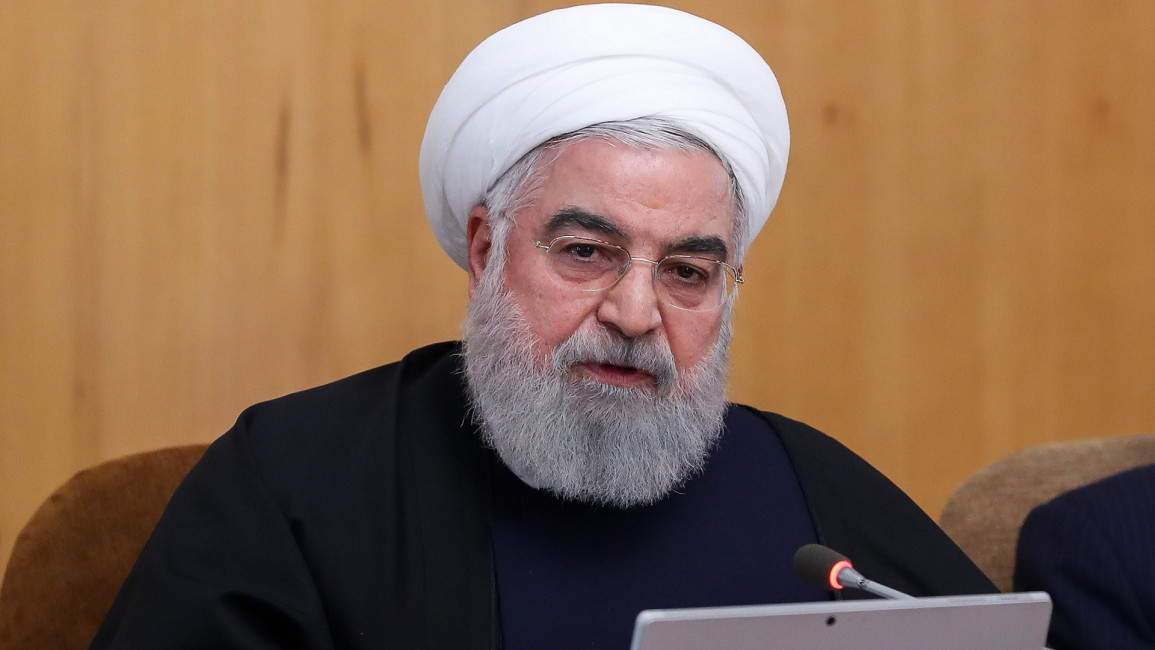Iran allocates 20 percent of state budget to fight coronavirus outbreak
“We are in difficult conditions, in conditions of sanctions but we have allocated 20 percent of our budget this year to corona, ... and this might be surprising for the world from a country under sanctions,” Rouhani said in comments broadcast on state TV.
Iran has been struggling to contain the pandemic in the country, which has hit its already-dwindling economy amid ongoing sanctions.
The 1,000 trillion rials budget will see $6.3 billion allocated to grants and low-interest loans to those affected by the novel coronavirus, Rouhani said.
The move comes after Rouhani on Thursday said authorities were working to seek approval for a $1 billion withdrawal from Iran’s sovereign wealth fund amid the ongoing fight against COVID-19.
Tapping the sovereign fund requires the agreement of Supreme Leader Ayatollah Ali Khamenei, who has the last say on all state matters, Reuters reported.
The Trump administration has kept sweeping sanctions on Iran, where 2,517 people have died from coronavirus, and in recent weeks has blacklisted more Iranians including over the clerical regime's heavy involvement in neighbouring Iraq.
On Thursday, the United States blacklisted five Iran- and Iraq-based companies and 15 individuals accused of supporting terrorist groups, its third round of sanctions on Iranian targets in the last two weeks.
Earlier this week, Iran turned down "foreign aid" from medical NGOs to help tackle the burgeoning coronavirus epidemic.
Iranian officials rejected the offer of Doctors Without Borders (MSF) to build a hospital in Isfahan despite new documents that show Tehran was the one to reach out to the organisation for help.
MSF is an international humanitarian NGO that provides doctors and other medical aid to areas in need.
The document, seen by Iran International, shows three ministries - health, interior, and foreign affairs - had invited MSF doctors to Iran to help deal with the virus.
It mentions that the organisation could build field hospitals in the hard-hit country and open up a flow of information exchange with Iranian doctors and other medical staff.
Twitter Post
|
In a surprise u-turn the government rescinded its invitation after Iran's Supreme Leader Ayatollah Ali Khamenei refused Washington's assistance, by peddling a conspiracy theory that the disease was created by the US government.
Ayatollah Ali Khamenei said: "I do not know how real this accusation is but when it exists, who in their right mind would trust you to bring them medication?”
"Possibly your medicine is a way to spread the virus more."
He went on to claim the virus "is specifically built for Iran using the genetic data of Iranians, which they have obtained through different means".
Read More: Trapped between Israel's occupation and coronavirus: How are Palestinians coping with the pandemic?
"You might send people as doctors and therapists, maybe they would want to come here and see the effect of the poison they have produced in person," Khamenei said.
Later, Alireza Vahabzadeh, adviser to Iran's health minister released a statement ruling out foreign aid.
In response, MSF crisis response head Michel-Olivier Lacharite said: "We are surprised to learn that the deployment of our treatment unity is cancelled."
He added the group had initially been given approval to set up a 50-bed unit, and said MSF was ready to deploy to Iran if the country changed its mind.
Despite its rejection of MSF Tehran has appealed to the international community for aid – and to ignore the crippling US sanctions.
In response, the European Union has said it would provide 20 million euros in aid to Iran, to help with the coronavirus epidemic.
Iran has been one of the hardest hit countries in the region, with an outbreak that has led to more than 35,408 cases, putting pressure on the heavily pressured health service.
Iranian ministers, MPs and generals have also been infected by the virus, and earlier this month Nasser Shabani, a top military commander in Iran’s IRGC forces was confirmed dead from the disease.
Follow us on Facebook, Twitter and Instagram to stay connected



